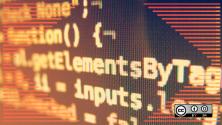Tabs versus spaces: What seems like an age-old debate in the development community has seen renewed interested in the past several weeks as a report came out from Stack Overflow revealing that developers who use spaces may make more money than those who use tabs. Who knew that indentation style could have such a big impact on you, personally?
Now, as with any study that links technical details with financial outcomes, there are a lot of details and caveats that you need to understand before making broad generalizations. Or in other words, don't expect that changing your coding style today is going to lead to a raise tomorrow.
In fact, after reading the study one data scientist, Evelina Gabasova, performed some additional analysis and came to a slightly different conclusion, which feels a little more precise: "Environments where people use Git and contribute to open source are more associated both with higher salaries and spaces, rather than with tabs." In other words, if you're at a company where you're using version control and committing open source code upstream, you're statistically a little more likely to be a space-user and a higher wage-earner.
But whatever your personal preference, we hope you'll obey the style guide of the open source project you're contributing to; many are quite strict about coding style. We also hope that you don't take other people's coding styles too personally:
In any case, let us know which style you prefer, and why, in the comments below.







13 Comments